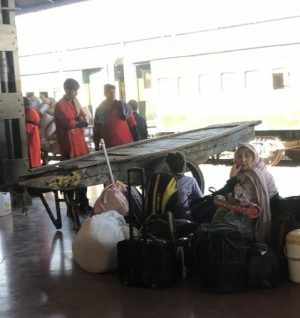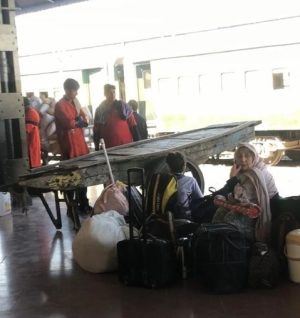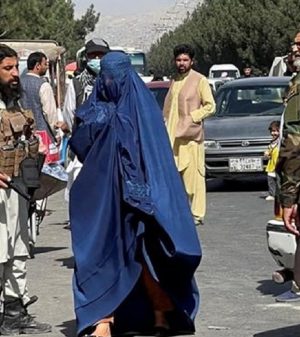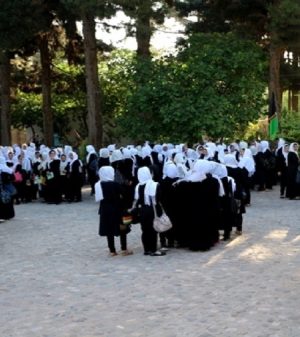
Russia’s anger over Russia’s bid to join the North Atlantic Treaty Organization (NATO) is seen to have escalated to the point where a Russian military strike on Ukraine has led to a war between the two countries and Russian troops have been able to advance into Ukraine. To; This attack has jeopardized European security, but the main question is why is Russia afraid of Ukraine’s membership in NATO? What does Russia want from Ukraine? What does Ukraine matter to Russia?
It will not be easy to answer the above questions unless we look at the background of Russia’s formation and geopolitical position. The formation of Russia dates back to the ninth century. Although there are differing views on the origins of the first people who made it, some consider them Slavs and others Viking invaders, they were still known as the “Kiev Russians” and were based in Kiev and other cities along the Dnieper River. Which is located in Ukraine today. In the thirteenth century, the Mongols conquered the region and moved central Russia from Kiev to Moscow, but in the sixteenth century, Russia’s borders extended from the Urals to the Siberian coast, eventually extending all the way to the Pacific coast. Included. In 1721, the Russian Empire was established by order of Peter the Great, and the empire conquered the Baltic states and annexed its territory. Thus, Russia’s geographical area began in the North, passing through Ukraine, the Carpathians, the Black Sea, the Caucasus, and the Caspian Sea, and finally encompassing the Ural Mountains. As a result of the 1917 revolution, the Soviet Union was formed, which covered most of Eastern Europe and North Asia. After the Second World War and the formation of the Soviet bipolar system, it was considered one of the world superpowers and its extent extended from the Pacific Ocean to Berlin. From the north to the borders of our country, Afghanistan had economic, political and military domination and was a fierce rival of the United States.
After World War II, NATO was established to provide security and counter Soviet expansionism, but after the collapse of the Soviet Union and the dissolution of the Warsaw Pact, the fight against international terrorism was at the forefront of its mission. With the end of the Cold War and the fall of the Soviet Union, a number of former Soviet-dominated communist countries that had suffered the most became members of NATO, and NATO was able to gain more influence in Eastern Europe near Russia’s borders by agreeing to Baltic states. Ukraine, Georgia and Moldova are among the countries that want to join NATO, but have been unable to join due to their geographical proximity to Russia and its military influence. The membership of each of these states in NATO, which is Russia’s red line, ignites the fire of war. Russia sees this as a serious threat to its security and believes that Western powers are using their allies to lay siege to the country, and that controlling attacks and insecurity has become a geopolitical concern.
Russia is geographically weak and the only reason for its strength is its energy resources, including oil and gas. Hence, geopolitical attitudes also influence the general policies of these countries, both in the peripheral environment and in the regions. One of its strategic problems is the lack of a port in warm waters to be able to access the ocean directly. One of the reasons for the Soviet invasion in our country was the access to the waters of the Indian Ocean, which was defeated by the Mojahedin.
Vladivostok is the port base of the Russian Navy, which is frozen for about four months and is surrounded by the Sea of Japan, which prevents the Russian fleet from becoming a world power. Northern ports like Murmansk have icy winters. Sevastopol, meanwhile, is Russia’s only major hot port in Crimea. However, access to the Mediterranean via the Black Sea was limited under the 1936 Treaty of Montreux, which ceded control of the Bosphorus and Dardanelles to Turkey, which is now a NATO member. Russian naval vessels cross the Strait in limited numbers, but will not be able to cross in the event of a conflict. Even after crossing the Bosphorus, Russia has to cross the Aegean Sea to reach the Mediterranean, from where it must either cross the Strait of Gibraltar to reach the Atlantic Ocean or cross the Suez Canal to reach the Indian Ocean.
Although the autonomous republic of Crimea came under the control of the Russian Federation in a domestic referendum in 2014, it is considered part of Ukraine by the United Nations. Therefore, if Ukraine commits itself to non-NATO membership and does not prevent Russia from accessing the Sevastopol port, the current crisis will be resolved. Or obscure it, and NATO member Ukraine pushing the West to Russia’s borders is unacceptable.
Hengameh Ghasemi, M.Sc. student of International Relations at the University of Tehran










Add Comment